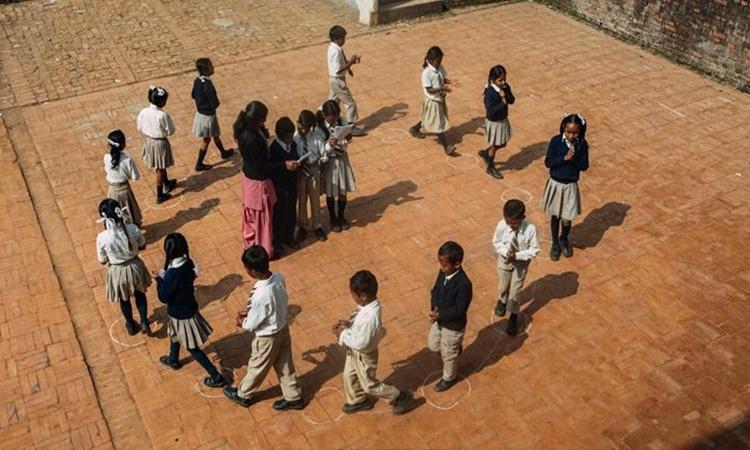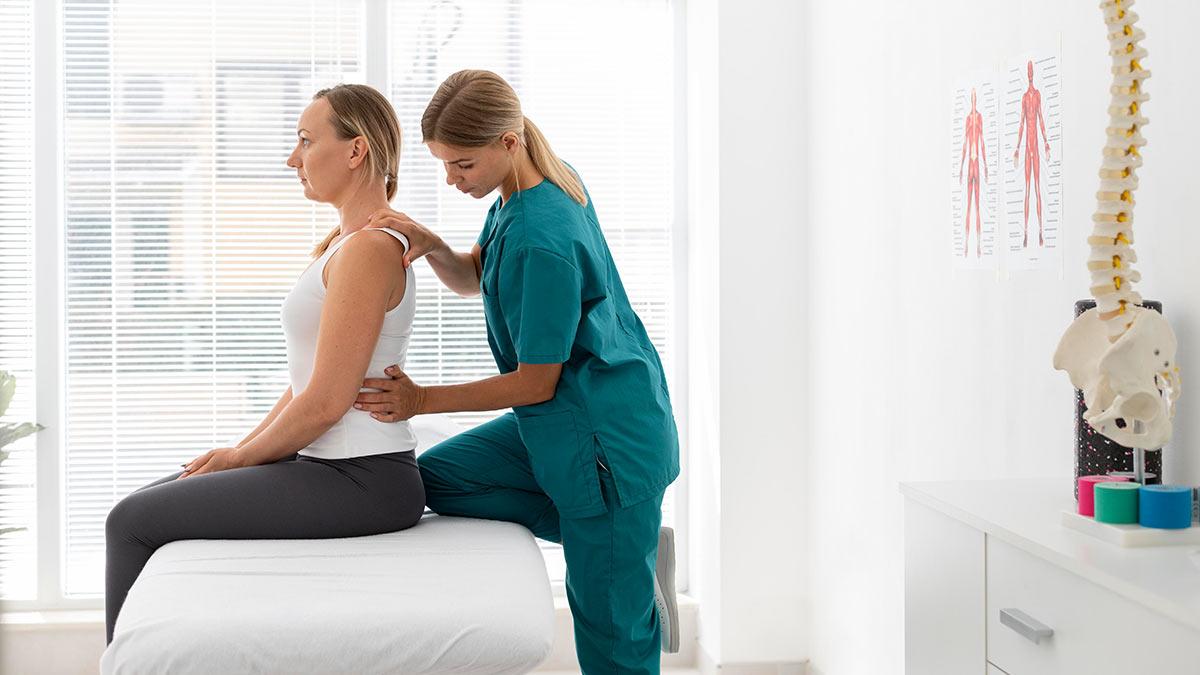While some states and cities in India saw the partial opening of schools for a short period of time prior to the new virus mutations that make the second wave so much more severe, it is a fact that pre-schoolers and those in elementary years, including primary years, continued to operate with their virtual engagements.
As it was not deemed 'safe' for them to be in physical environments other than the safety of their homes given a host of reasons that were agreed upon by governments, education departments, local administration, etc. In fact, if reports are to be believed, even those that could attend school as a physical class had many parents deciding against this, forcing schools to adopt the blended format of learning.
This 'wait' for the physical school for those that were denied entry, to the 'anxiety' associated with the physical classes did create a further impact on children and the way they express themselves.
The conversations around Covid are not joyous ones and be it news channels or discussions at home with everyone is locked in did its fair share of damage to these little minds who suddenly found themselves 'distanced', isolated, restrained, and being exposed to circumstances that were totally alien. From the 'breaks' they got from their home when in school, or outdoors, playing or even in classes, this around the clock with nowhere to go and dependent on their family for support was a challenge for these children and that is a simple fact. They missed their friends, the comfort of their teachers helping them and generally life turned on them!
The teachers tried their best to engage, create activities, parents with their own workload toiled away, but the 'distance' for the younger children was especially difficult and teenagers have complained of fatigue as well. Their little world turned upside down in the past 12 months, a school year has gone by, and to be told yet again that the world will not normalise despite some 'vaccines' because the 'numbers are rising' is all too much for children this young. If adults are experiencing languishing, lethargy, lack of motivation, depression, and loneliness, imagine the children!! As Harvard researchers point out, they are still 'work-in-progress' and do not have the experience to manage or cope, and yet they are being forced to!
This makes for a strong case for adults be it teachers or parents to think long and hard about the well-being -- emotional, social, and behavioural health of the children. For starters, consider that they are a 'little broken' despite those smiles and the strong facade and with that create an approach of being compassionate, communicative, proactive, and empowering.
10 simple things to remember:
* Be alert for signs and have a 'routine' of checking-in protocols which are not 'how are you feeling' questions, but instead sharing a story of someone feeling low and testing what their reactions are! Children respond with ease when the attention is shifted to someone else, and while they begin to identify with the story, they may find themselves opening up without pressure. That's what you need to ensure that you understand their emotional state and deal with this accordingly.
* Before jumping into solving the problem, and being very mindful of allowing them to express themselves without judgement, remember to focus on the 'emotion' or the moment as opposed to the individual. For example, during a temper tantrum instead of calling the child, a 'bad boy' considers saying, 'I sense that you are feeling bad about something, and I know it is making you upset, once you are ready to talk, I am here to listen.' Sometimes, a hug following that will work, sometimes walking away will work. You have to gauge the pattern.
* The 2 F's (Food and Fitness) for me are always a huge trigger point that results in emotional and behavioural challenges. Ninety per cent can be attributed to lack of exercise or fitness routines and a diet that does nothing for the nutrition that will not help them regulate their moods. I am not saying recommend to families to alienate their favourite foods (how much more will we distance them from the things they love) but social media is buzzing with recipes that make for delicious food that will work for children in keeping with their palate. Kids need to have some form of physical activity be it yoga, skipping, running, playing, or even doing errands through the day by organising themselves! For every two hours of sitting in one place, there must be 20-minute breaks -- think of it as a long airplane ride, remember what the voice always tells you -- move around. Apply this principle. Especially when planning lessons -- include a treasure hunt, physical break time to dance or jump, etc!
* Kids need to interact with the kids of their own age, and therefore recommend to families to make an effort (if safe) to connect with other families in their building or neighbourhood to meet with social distancing and safety norms. This 'physical' presence helps them develop the social skills and this can always be organised when consulting the family, their health status, etc. If this is a strict no-no then try games played online with fellow kids, chatting in zoom parties, or participation in summer classes where they can engage with children of their own age.
* Sleep deprivation is another contributor to the emotional and behavioural changes in a child, and almost all the time, this is either an irregular and lopsided day with extreme access to the screen, poor eating habits, and almost no physical fitness routine. A child needs 10 to 12 hours of sleep to allow the mind and the body to develop and this sleep deprivation is a major cause, this would be non-negotiable as a recommendation to parents.
* Communication does not always have to be direct with children -- as explained earlier use books, perhaps YouTube videos, or a movie to get kids into conversations and discuss about their feelings, their fears, their joys. Often as adults, our instinct is to ask, 'is everything ok?' -- instead of the negative, focus on the positives (did you see how she jumped with joy when she saw her favourite ice cream was available) as well and then make your way to the negative. It allows the child to ease into a conversation and makes it less threatening. Also, do not play the guilt game or reward them for opening up -- they have nowhere else to go, so they will open up, but it takes time and patience and by maintaining this consistent communication, you have allowed them to know that they can connect with you which is critical for the emotional needs.
* Maintain a journal and a diary of the child's behavioural changes if any. It is important to understand the trigger points, the pattern and in some cases of trauma or abuse, it must be important to report this to the counsellor to seek professional intervention
* As facilitators, it is critical to understand that this Covid schooling requires a re-orientation of some academic targets for the students in favour of mental well-being. Children need to feel enthused to learn, and if there is a period of 'languishing' then better to bring in the ice-breakers and games than try and teach them fraction word problems. Be flexible, adjust and prioritise well-being.
* Planning activities to include plenty of group work, group games, etc will help children slowly regain their confidence with social skills. They can be 'taught' these by encouraging words, giving them strategies, and reassuring them that they are on the right path by role modelling as well!
* Home-school partnership cannot be emphasised enough, and the connection must be real-time, proactive, and transparent about the challenges faced in school and at home to help the child transition to this Covid phase. Some children breeze through it, some require direction while some simply struggle, so important to have personalised and customised approach for them.
Academic milestones are critical when one thinks of developmental goals, but these can be 'made-up', what is extremely difficult is regaining the strength or the confidence to be emotionally secure, and content, aware, etc. which means the focus for adults who engage with these children must be about well-being a priority.
Schooling isn't about words and numbers, and learning about mountains and rivers and moon and stars, what does any of this mean when the child is lugging around a heart that is so full of emotion, and pain that it dulls every information coming in!


















